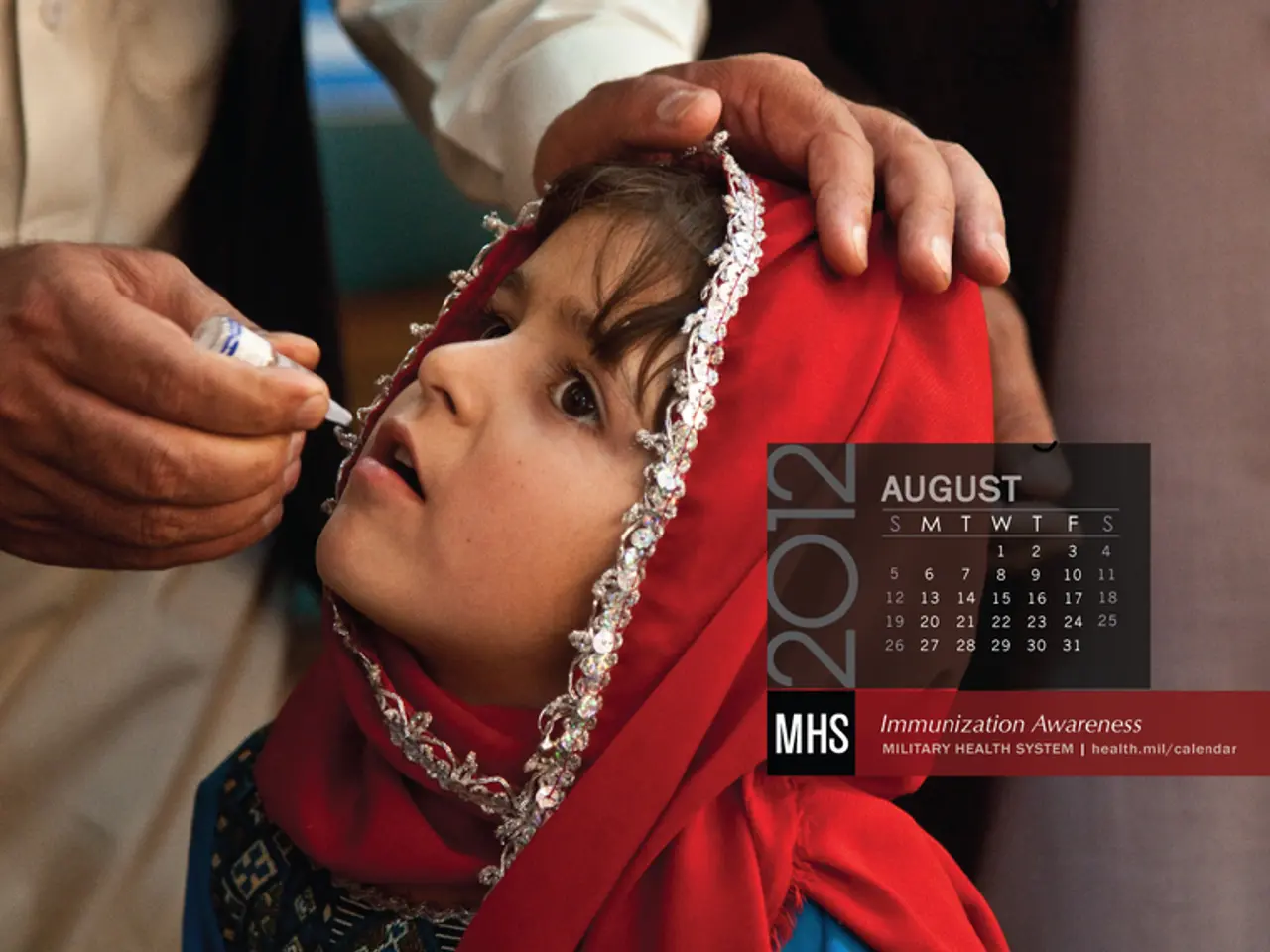Intestinal infection symptoms, duration, when to get help, medical treatment options for viral gastroenteritis
Article Title: Managing Viral Gastroenteritis: A Comprehensive Guide
Viral gastroenteritis, often referred to as the 'stomach flu', is a common condition that affects the stomach and intestines. This article provides a guide on managing the condition, its symptoms, and prevention measures.
Symptoms and Duration
Symptoms of viral gastroenteritis typically begin 12-48 hours after exposure and may last for 1-3 days in otherwise healthy adults. In young children, the symptoms are similar, but dehydration may be more serious and have more quickly appearing complications. Astrovirus symptoms begin 4-5 days after exposure and may last 1-4 days, while Rotavirus symptoms start 2 days after exposure and last for 3-8 days. Occasionally, a person with viral gastroenteritis may experience fever, which may include chills and aches.
Dehydration and Hydration
A common complication of viral gastroenteritis is dehydration. Symptoms of dehydration include infrequent urination, dark urine, feeling very thirsty, dry mouth, tiredness, sunken eyes or cheeks, lightheadedness or feeling faint, and decreased skin turgor. To prevent dehydration, it's recommended to start with small, frequent sips of fluids. For children, give 2-3 teaspoons of fluid every 5 minutes initially, gradually increasing as tolerated. For adults and teens, aim to consume 2-4 liters (8-16 cups) over 3-4 hours, starting slowly to avoid triggering vomiting.
Preferred fluids include water, clear broth (chicken, beef, vegetable), sugar-free electrolyte drinks or powders, and oral rehydration solutions (ORS) such as Pedialyte and store brands designed for rehydration. Avoid sugary drinks (sodas, fruit punches), caffeine, alcohol, and coconut water as they either lack the needed electrolyte balance or may worsen symptoms.
Diet and Medications
Once rehydration is established and appetite returns, introduce gentle, bland foods such as toast, plain rice, bananas, or boiled potatoes. Loperamide (Imodium) and bismuth subsalicylate (Pepto Bismol or Kaopectate) can help relieve symptoms of diarrhea in a person with viral gastroenteritis, but people who have a fever or who are noticing blood in their stools should not take these OTC medicines and should consult a healthcare professional.
Prevention Measures
To help prevent viral gastroenteritis, it's important to wash hands well, disinfect surfaces, wash clothes or fabrics, avoid handling or preparing food for other people if you have symptoms of viral gastroenteritis, keep children and adolescents at home if they have symptoms, and protect children by them against rotavirus, a common cause of viral gastroenteritis.
Seeking Medical Care
If vomiting or diarrhea persists beyond a few days, if dehydration signs worsen, or if you or your child cannot keep fluids down, medical evaluation is essential. A stool test may be useful to distinguish the virus responsible for the illness. Children should continue to drink breast milk or formula if it is part of their usual routine.
Infants and children are particularly susceptible to complications from viral gastroenteritis, and caregivers should talk with a healthcare professional for advice if they are concerned.
- In managing viral gastroenteritis, it's crucial to be aware that young children may experience more serious dehydration quickly, which can lead to health complications.
- Dehydration is a common complication of viral gastroenteritis, with symptoms such as infrequent urination, dark urine, and dry mouth.
- To prevent dehydration in children, start with small, frequent sips of fluids like water, clear broth, sugar-free electrolyte drinks, or oral rehydration solutions (ORS) like Pedialyte and store brands.
- In cases of viral gastroenteritis, it's essential to rehydrate the body and reintroduce gentle, bland foods like toast, bananas, or boiled potatoes once rehydration is established and appetite returns.
- Pfizer's vaccines can help protect children against rotavirus, a common cause of viral gastroenteritis, thus reducing the risk of health-and-wellness issues related to this condition.
- Proper nutrition, fitness-and-exercise, and medical care remain essential in maintaining children's health, especially when it comes to managing their health conditions like viral gastroenteritis.




